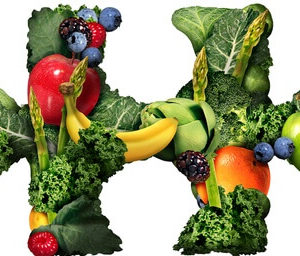Organic Food: Why Choose Organic?
How Does Eating Organic Food Affect Me and Why Should I Care?
In study after study, from independent research organizations, eating organic is simply the smarter choice than traditional foods. Organic food versus conventional food is:
- Higher in nutritional value
- Free of chemicals and neurotoxins
- Better tasting
- Protective of the environment
- The healthier choice
According to the National Academy of Sciences, 90% of the chemicals applied to our conventional foods have NOT been tested for long-term health effects before being deemed “safe.” The Food and Drug Administration (FDA) tests only 1% of foods for pesticide residue. The most dangerous and toxic pesticides require special testing methods, which are rarely, if ever employed by the FDA. Consumers need to become more aware of what we are putting into our bodies and how it affects our overall health.
What Makes Food Organic?
According to the USDA National Organic Program (NOP), organic food is defined as food that is being produced by farmers who emphasize the use of renewable resources and the conservation of soil and water to enhance environmental quality for future generations. Organic meat, poultry, eggs, and dairy products come from animals that are given no antibiotics or growth hormones. Organic food is produced without using most conventional pesticides; fertilizers made with synthetic ingredients or sewage sludge; bioengineering; or ionizing radiation. Before a product can be labeled “organic,” a Government-approved certifier inspects the farm where the food is grown to make sure the farmer is following all the rules necessary to meet USDA organic standards. Companies that handle or process organic food before it gets to your local supermarket or restaurant must be certified too.
Organic crops must be produced in uncontaminated soil, no genetic modifications and must be stored apart from standard products when processing. The farmers cannot use man-made fertilizers, genetically modified organism (GMOs), petroleum-based fertilizers or sewage sludge-based fertilizers. Organic livestock must have access to the outdoors and must be given strictly organic feed. They are not to be given any antibiotics, animal by-products or growth hormones of any kind. Since organic food is pesticide and toxin-free, it is a much healthier choice over conventional food.
According to Science Daily, a Newcastle University study showed both organic milk and meat contain around 50 percent more beneficial omega-3 fatty acids than conventionally produced products. The studies were reported by researchers who conducted methodical literature analyses on data from around the world.
The most important piece of information from this study showed that a switch from conventional to organic would raise omega-3 fat intake with no increase in calories and unwanted saturated fat. For example, half a liter of organic full fat-milk (or equivalent fat intakes from other dairy products like butter and cheese) provides an estimated 16% (39 mg) of the recommended, daily intake of very-long-chain omega-3, while conventional milk provides 11% (25 mg). Researchers felt the reason for this difference might be due to the fact that the animals were getting better nutrition.
People with food allergies or who have sensitivities to preservatives and chemicals, often find that their symptoms decrease when they stay with a strictly organic diet.
Good nutrition in = good nutrition out
The more minerals in the soil our foods are grown in, the more minerals in the foods that are being produced. It’s pretty straightforward when you think about it in those terms. Good nutrition being put into our soil means better quality nutrition coming out.
Fruits and vegetables grown decades ago were denser in vitamins and minerals than the varieties we get today. The main cause of this disturbing problem is soil depletion. Modern-day agricultural systems have stripped the nutrients from the soil. Unfortunately, with each consecutive generation of fast-growing, pest-resistant crops, the food produced is of poorer value than the one before.
Benefits of Organic Farming
Organic farming produces a better quality of food and is also better for the environment. The methods of organic farming will reduce pollution, reduces soil erosion, and increases soil fertility. Increased soil fertility can also have positive effects on the nutritional value of produce.
What can be done?
The key to healthy produce is healthy soil. Alternating fields between growing seasons to give land time to recover is an important step. Not using synthetic pesticides and fertilizers in favor of organic growing methods is another method. People who want to get the more nutrient dense fruits and vegetables should purchase regularly from local organic farmers.
The Bottom Line
Eat organic whenever possible.
written by Cathie Glennon, BCRPA-SFL, CSNA
-
 Eating Smart Podcast$15.75
Eating Smart Podcast$15.75

